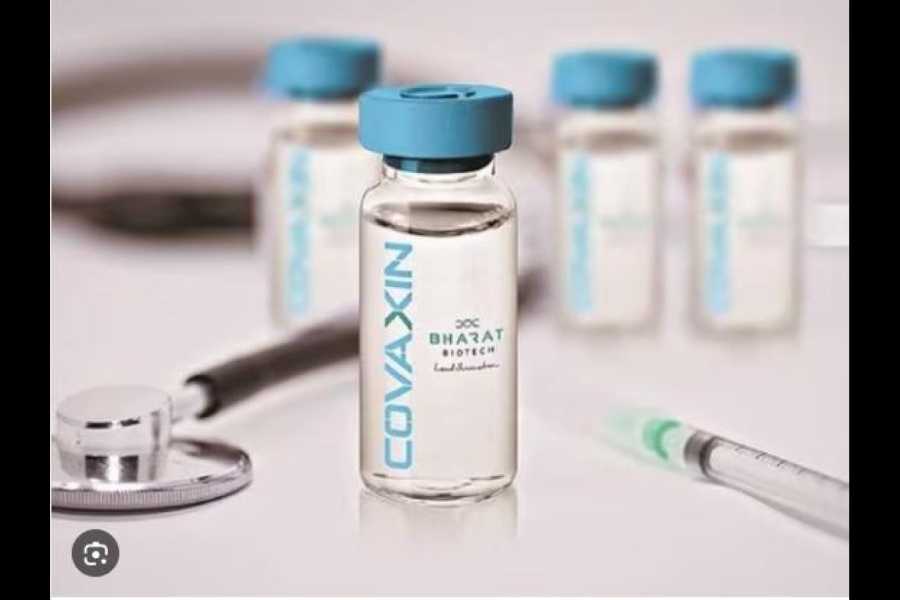India’s apex health research agency has decried a study purported to be a “safety analysis” of the homegrown Covid-19 vaccine, saying the study was poorly designed, flawed and falsely portrayed as having received the agency’s support.
The Indian Council of Medical Research (ICMR) has listed multiple flaws in the study by researchers at the Banaras Hindu University (BHU) that had claimed without meaningful evidence that “serious adverse events may occur in one per cent” of Covaxin recipients.
The ICMR has also said it did not provide any financial or technical support to the study as claimed by the BHU researchers. It has urged an international journal that published the study to retract the paper as, the agency said, it “implicitly makes conclusions about vaccine safety that are not supported by evidence”.
The assertions made by the ICMR in letters sent to the BHU researchers and the journal on May 18 come amid concerns among sections of doctors that irresponsible interpretation and dissemination of the study could spawn needless fears and vaccine hesitancy among the public.
Covaxin, developed by the ICMR in partnership with Hyderabad-based vaccine maker Bharat Biotech, was one of the two main Covid-19 vaccines used in India. Covaxin accounted for more than 363 million doses among over 2.2 billion doses of Covid-19 vaccines administered across the country, according to government data.
For the study, a team of 11 BHU researchers had contacted via telephone around 900 adolescents and adults a year after they received Covaxin and questioned them about their health.
They documented upper respiratory tract infections in 40 per cent, skin disorders in 10 per cent, and serious adverse events in 1 per cent, among their other findings and claimed that “extended surveillance” was warranted in Covaxin recipients.
The ICMR has now flagged what it has described as critical flaws in the study, echoing views shared by a section of doctors who had seen the study paper published on May 13 in Drug Safety, a peer-reviewed journal.
The study has no control group of unvaccinated persons to compare the rates of adverse events between the vaccinated and unvaccinated group, the ICMR said. "Hence, the reported events cannot be linked or attributed to the Covid-19 vaccination,” it said.
The study also does not provide any background rates of the observed events in the population, making it impossible to assess the change in incidence of the observed events in the post-vaccination period and the baseline health information of the study participants is missing.
The ICMR also said the data collection method had a high risk of bias. The participants were contacted via telephone and their responses recorded without confirmation with clinical records or physical examination.
Doctors have applauded the ICMR’s assertions, saying irresponsible interpretation and media reports on the study’s results amplified via social media could fuel anti-vaccine narratives.
“Low-quality research that promotes anti-science and anti-vaccine sentiments in the public should be taken out at the root,” Cyriac Abby Philips, a liver specialist in Kerala, told The Telegraph.
Ishwar Gilada, an infectious diseases specialist in Mumbai, said such flawed research and equally faulty interpretation can give rise to "psychosis-like fear".










